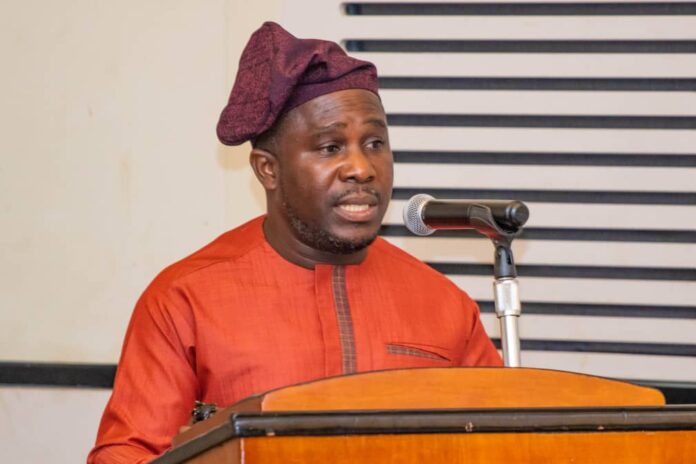The Executive Director for Institute for Energy Security (IES), an energy think tank in the Republic of Ghana, Nana Amoasi (VII), has applauded the Edwin Nii Obodai-led management of Bulk Oil Storage and Transportation Company Limited (BOST) for the steps it has taken so far to revive the company’s abandoned assets.
Edwin Nii Obodai Provencal was appointed the Managing Director of the state company in August 2019, to replace George Mensah Okley who resigned from his post.
At the time he assumed office, BOST’s assets, such as pipeline infrastructure, storage tanks, barges, tagboats and other vital installations, had been abandoned for years without repairs.
Besides, BOST was saddled with huge legacy debts which date back under the National Democratic Congress’ administration.
However, barely a year and half when the current MD had been in the helm of affairs, the sordid state of BOST has seen an improvement.
Speaking to energynewsafrica.com in an interview after a presentation by the Managing Director of BOST, Edwin Provencal, to some selected Civil Society Organisations (CSOs), Nana Amoasi VII said, “Looking at the presentation from BOST management today, they give an account of the revenue that has come in from an increment in their BOST Margin, and how they have expended this money as it has been shown has gone into repair of tanks. Some of the tanks were in a bad shape. We have seen the money go into the revival of pipelines infrastructure or network that were not working, for example Buipe to Bolga pipeline are being down since early 2017 and now is up because of the support CSOs gave to BOST to be given an increment in their Margin. We have also seen Tema-Akosombo Pipeline Project also 100 percent completed, according to the management and we’re yet to go to the field to confirm and if it’s true, then, we will say BOST has done well.
BOST had successfully repaired six out of the 15 storage tanks at APD, Buipe and Bolga, which were abandoned have now been repaired and are currently being in use.
“The Buipe-Bolgatanga Petroleum Product Pipeline (B2P3) had also been repaired and currently in use while repair works on the 6’’ Tema-Akosombo pipeline has just been completed.
“There is also repairing and spraying of barges and tagboats and extension of 8″ pipeline to the oil jetty, supply and installation of mass flow meters, fixing of pumps and loading arms, remedial works on 18″ CBM pipeline and commencement of Front End Engineering Design (FEED) for Accra -Kumasi pipeline.”
The IES boss said “this is good news we’re getting from BOST, but Civil Society will go to the field and confirm same and if it’s true that we’re having these on the ground, then, its good news for Ghanaians.”
On the revenue performance of the various departments of company, the Terminal Department recorded GHS48 million revenue in 2020 as compared to GHS45 million in 2019, representing seven percent.
The volume of products sold in sold in 2020 was 685,000 metric tonnes as compared to 652,000 metric tonnes representing five percent jump.
The Transmission Department also raked in GHS7 million in 2020 as compared to GHS2.9 million representing 141 percent with the volume of product skyrocketing to 23,224 metric tonnes in 2020 while 2,200 metric tonnes was sold in 2019, representing 1,057 percent.
Interestingly, the Fuel Trade Department made GHS 600,000 losses in 2019. However, in 2020 it made GHS26 million in profit, representing 4,348 percent after trading 150,000 metric tonnes of fuel compared to 77,000 metric tonnes in 2019.
Commenting on the trade profit of GHS 26 million for last year, Nana Amoasi VII described it as a very high performance saying, “It’s good to see bad performance in 2019 changed to a good revenue flow in 2020.”
According to him, CSOs are yet to see how BOST would ensure efficiency in their depots in order to attract business from third parties so that their assets become utilised.
“They should ensure that they have a good system where product coming into their system is fluid moving out from the primary depot being Accra Plains Depot (APD) is also fluid and efficient that is where BDC’s and other companies would want to do more business with them,” he advised.
Source: www.energynewsafrica.com
















